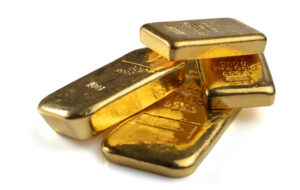World’s Ultra-Wealthy Go for Gold amid Stimulus Bonanza
The comments below are an edited and abridged synopsis of an article by Brenna Hughes Neghaiwi and Simon Jessop
As stock markets roar back from the Covid-led rout, advisors to the world’s wealthy are urging them to hold more gold, questioning the strength of the rally and the long-term effect of global central banks’ cash splurge.
Before the Covid pandemic, most private banks recommended their clients hold either a small amount of gold, or none. Now they are channeling up to 10% of their clients’ portfolios into the yellow metal as the massive central bank stimulus reduces bond yields—making gold more attractive—and raises the risk of inflation that would devalue other assets and currencies.
While gold has already risen 14% since the start of the year, many private bankers bet that gold—a hedge for both inflation and deflation—has farther to run.
Nine private banks, which collectively oversee around $6 trillion in assets for the world’s ultra-rich, said they had advised clients to increase their allocation to gold. Of them, four provided forecasts and all saw prices ending the year higher than they are now.
UBS, the world’s biggest wealth manager, said gold could hit $1,800 by year-end in its base-case scenario, driven by ultra-low interest rates and investors seeking gold to hedge their portfolios, or even touch a record high of $2,000 in the event of a second wave of Covid-19 infections.
Morgan Stanley added a 5% position to commodities, including gold, in all its models at the end of March.
While the bank was unlikely to advise a position above 10% in commodities like gold, it could get there, especially if inflation picks up materially.
The boost in demand could be a self-fulfilling prophecy for the metal’s price, as any shift in allocation from bond and equity markets, estimated at up to a combined $200 trillion, has a much larger effect on the smaller gold market, estimated at less than $5 trillion.

